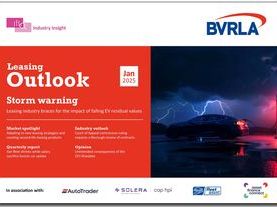Commenting on today’s announcement that the Government is changing the rates and eligibility criteria of Plug-in Grants for cars and vans, BVRLA Chief Executive, Gerry Keaney, said:
“Financial incentives such as the Plug-in Grants have proven to be a positive factor in encouraging people into electric vehicles, evidenced by the continued growth we’re seeing. Subsidies cannot run forever, but the fleet sector relies on certainty, reducing these grants will have a negative impact on this.
“While we’ve seen high levels of uptake within the car market, the situation is not the same for electric vans. The disparity across the industry means that sweeping solutions are not suitable.
“Incentives have had a positive impact to date but there is more to be done. It is disappointing to see support declining when cost remains a crucial stumbling block.
“There remain many barriers that are slowing down the mass transition to electric vans. Today’s news increases those challenges and will delay the uptake of electric vans. This is particularly the case for SMEs, where the lack of price parity between ICE vehicles and electric alternatives makes it hard to create a realistic business case to make the switch.
“For the move towards electric vans to gain momentum, more support and incentives are essential, now is not the time to remove or reduce them.
“We are calling on the Government to provide more support around commercial vehicles, including an extension of the Plug-in Van Grant beyond the current 2022/2023 end date.”
More information on the updates to the Plug-in Car and Plug-in Van Grants is available on the BVRLA website.
Visit the Guidance page for full details.




